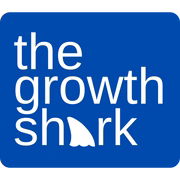SEO metrics for tracking organic performance describe how people are finding your content on their own.
It will illuminate what they do on your website when they get there.
There are many different ways to look at visitor behavior, all of which can help you better understand the performance of your content.
In this article, we'll break down these top SEO metrics to track organic performance:
- Organic Traffic Numbers
- Exit Numbers
- Click Thru Rate
- Pages Per Session
- Referring Domains
- Total Clicks
- Unique Clicks/Visitors
- Index Coverage Errors
- Average Page Load Time
- Event Actions
Organic Traffic & Engagement

Organic traffic and engagement numbers are good SEO metrics to track organic performance because, when viewed carefully, they can help you see your website from the perspective of a visitor.
#1) Organic Traffic Numbers
Organic traffic numbers simply illustrate how many people are coming across your website through search engines.
This metric will help you get an idea of how well your keyword performance is doing.
How does organic traffic work?
Organic traffic is when a user visits a website they found through a search engine like Google or Bing. This kind of site traffic means visitors are not being referred by another website or clicking on a paid advertisement.
Usually, this means they're searching for something specific and finding the website on their own.
#2) Exit Numbers
Exit numbers help you see where people are exiting out of your website.
This helps answer a HUGE question: What page do people exit on the most?
Google explains, "Exit Rate is the percentage that were the last in the session. For all sessions that start with the page, Bounce Rate is the percentage that were the only one of the session. Bounce Rate for a page is based only on sessions that start with that page."

High exit numbers are not bad—everyone has to leave your website eventually—but if the same posts are consistently leading to people clicking off, it may suggest that something about the content is drawing in the wrong viewers.
#3) Click Thru Rate
The click-thru rate (commonly abbreviated as CTR) describes the number of times your ad is clicked, divided by how often it is displayed.
A high click thru rate shows that your ads are being perceived as helpful and engaging.
A low click thru rate suggests that your ads may need to be recalibrated.
How do I add a click through rate in Google Analytics?
- Select your account and the newly created property in the top drop down.
- Select “Calculated Metrics” in the right “View” column.
- Select “+ new calculated metric”.
- A dialog opens to create the metric.
- Call the metric “CTR”, choose “Percent” as Formatting Type.
#4) Pages Per Session
Pages per session describe the total number of page views divided by the number of sessions that have taken place.
In other words, how many pages is the average reader looking at when they visit your website?

A high number of page views suggests that your pages are attracting the right audience and that the content you post is being perceived as engaging and helpful.
Linking internally to other pages on your site can naturally improve the chances of people sticking around for multiple pages.
What is a good pages per session goal or benchmark to hit?
How many pages per session is good? Anything more than 4.0 pages per session would put you in the best 20% of sites we benchmark for pages per session, and more than 5.1 would put you in the best 10% of websites.
#5) Referring Domains
Referring domains are websites that direct users to your pages.
A high number of referring domains usually indicates that your page is being viewed as a source of authority on a subject.
Not only will you get higher levels of traffic from readers who found your content on other sites, but you will also rank higher on the search engine.
Where do I find referring domain in Google Analytics?
To view Referrals:
Go to: Acquisition > All Traffic > Referrals
Once here, you'll see a list of the sites that referred traffic to your website. These will be sorted by Session Volume. You'll also be able to view metrics for the volume of traffic, engagement, and conversion performance.
Clicks, Errors & Loading
To this point, the SEO metrics to track organic performance have been primarily general, describing the overall health of your website.

For those wondering what metrics should I track for SEO, they are a good start, but they may not be enough to get a more granular understanding of your page performance.
#6) Total Clicks
Total clicks describe the total number of clicks during a campaign.
They can be unique, or all come from the same subscriber.
Are clicks and visits the same in Google Analytics?
Clicks indicate the number of times a user clicks on your ad while visits indicate the number of unique sessions associated with each of the visitors. An ad can be clicked several times by the same visitor which results in several clicks to be recorded in the same session.
#7) Unique Clicks/Visitors/Users
Unique clicks count individual clicks, and will not record repeat visits from the same subscriber.

Ok, so what are unique visitors and users in Google Analytics?
A unique visitor refers to a user who has visited the website at least once and is counted only once in the reporting time period. So if the user visits the web more than once, it counts as one visitor only. It's also called a “Unique User”.
#8) Index Coverage Errors
Index coverage errors explain how well your site has been indexed by Google, documenting changes over time.
These can be found in Google Search Console:

It will also provide warnings in the event of URL errors and other indexing issues.
How do I fix index coverage errors in Search Console?
- Click into the issue to learn the details of the error. ...
- Click Learn more on the details page to see the details of the problem.
- Click an example URL row in the table to get details on that specific error.
- Fix your pages and then click Validate fix to start validation.
#9) Average Page Load Time
Average page load time explains how long it takes for the page to show up on your screen.
What is a good average page load time in Google Analytics?
Serve your website users with a strong page load time, the goal being around 1-2 seconds.
#10) Event Actions
Event actions illustrate how many people are clicking on an ad that says “Get started” (or something to that effect) versus the number of people that navigate directly to the sales page.
In other words, what paths are people using to navigate your website?

Why are these organic SEO metrics important?
The SEO metrics to track organic performance are important because they provide you with actionable insights into how people are interacting with your website.
Below, we look at how these top SEO metrics help you.

Learn more about brand users
Knowing more about how your viewers behave on your site can help you optimize your content and website structure to keep people engaged and attract more visitors.
Know if things aren't working
The SEO metrics to attract organic performance that we have looked at will also help you detect problems.
Low traffic is a good sign that your website isn’t SEO friendly.
Know what’s popular & working
Your most successful pages can serve as a good road map for the rest of your content.
Figure out what makes the page work and apply that to the rest of your articles.
Create content geared towards your audience
The keywords that are performing the best will usually indicate what your audience is interested in.
Use those as inspiration for the rest of your content.
Direct visitors to sales page
Once you understand what pages are the most successful, you can find a way to sell from them.
Use that content to direct viewers to your sales page.
SEO Metrics can be the key to driving organic success
By using SEO metrics to track organic performance, you can potentially grow your business like never before.
Without these powerfully insightful organic metrics, your online content strategy is basically left up to guesswork. Why put time into a website and then leave its performance up to chance?
It always helps to find an experienced marketing agency to help guide you in growing your website traffic organically to boost page views, and ultimately, drive sales and conversions.

















